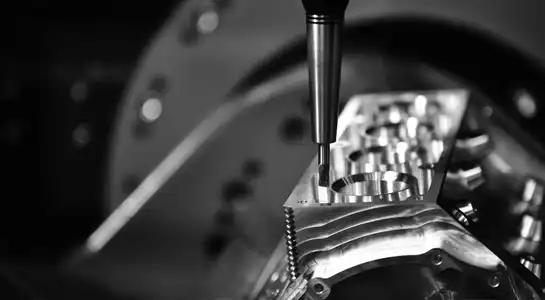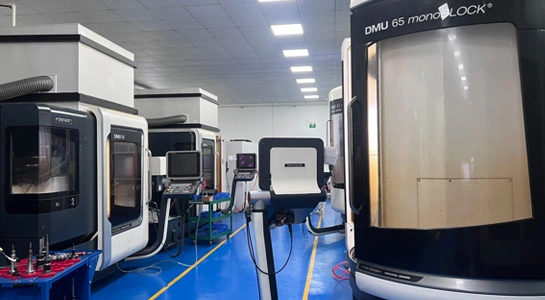The Importance of Quality in Aerospace Components
Safety Standards and Regulations
In the aerospace industry, safety is paramount. Every component, no matter how small, plays a crucial role in ensuring the reliability and performance of aircraft and spacecraft. Strict regulations set by aviation authorities worldwide demand that all parts meet exacting standards. These regulations cover everything from material selection to manufacturing processes and quality control measures.
Suppliers must adhere to these standards rigorously, implementing robust quality management systems and obtaining necessary certifications. This commitment to quality assurance is non-negotiable, as even minor defects can have catastrophic consequences in aerospace applications. Manufacturers must carefully vet potential suppliers to ensure they have the capability and track record to consistently produce components that meet or exceed these stringent requirements.
Material Selection and Verification
The choice of materials for aerospace precision components is critical. These materials must withstand extreme conditions, including high temperatures, pressure variations, and corrosive environments. Aerospace-grade materials often include specialized alloys, composites, and advanced polymers that offer superior strength-to-weight ratios and resistance to fatigue and corrosion.
Suppliers must have expertise in sourcing and verifying these materials. This involves thorough testing and documentation to ensure material properties meet specified requirements. Advanced techniques such as spectrometry and x-ray diffraction may be employed to verify material composition and structure. The ability to provide comprehensive material certifications and traceability is a hallmark of reputable aerospace component suppliers.

Precision Manufacturing Techniques
Aerospace components often require extremely tight tolerances and complex geometries. This necessitates the use of advanced manufacturing techniques and high-precision equipment. Suppliers must invest in state-of-the-art CNC machining centers, additive manufacturing systems, and other specialized tools to meet these demanding requirements.
Precision manufacturing extends beyond just the machining process. It encompasses every stage of production, from initial design and prototyping to final inspection and testing. Suppliers must demonstrate proficiency in techniques such as 5-axis machining, electrical discharge machining (EDM), and precision grinding. They should also have capabilities for in-process measurement and real-time quality control to ensure consistent accuracy throughout the manufacturing process.
Strategies for Finding Cost-Effective Suppliers
Leveraging Advanced Manufacturing Technologies
One key strategy for finding affordable aerospace precision components suppliers is to seek out those who leverage advanced manufacturing technologies. These cutting-edge techniques can significantly reduce production costs while maintaining or even improving quality standards. For instance, additive manufacturing (3D printing) allows for the creation of complex geometries with minimal material waste, potentially lowering costs for certain components.
Similarly, suppliers who utilize automation and robotics in their manufacturing processes can often offer more competitive pricing due to increased efficiency and reduced labor costs. Look for suppliers who have invested in technologies like automated inspection systems, which can enhance quality control while reducing the time and cost associated with manual inspections.
Exploring Global Supply Chain Options
While domestic suppliers may offer advantages in terms of communication and logistics, expanding your search globally can uncover cost-effective options without compromising on quality. Many countries have developed robust aerospace manufacturing capabilities, often with lower overhead costs that translate to more competitive pricing.
When exploring international suppliers, it's crucial to thoroughly vet their credentials, certifications, and track record in the aerospace industry. Look for suppliers who have experience working with international clients and are familiar with global aerospace standards and regulations. Consider factors such as language barriers, time zone differences, and shipping logistics when evaluating potential international partnerships.

Building Long-Term Partnerships
Establishing long-term relationships with suppliers can lead to significant cost savings over time. When suppliers have a consistent stream of business, they can often offer more competitive pricing and may be willing to invest in specialized equipment or processes to meet your specific needs. Additionally, long-term partnerships foster better communication and collaboration, which can lead to continuous improvement in both quality and cost-effectiveness.
Look for suppliers who are interested in more than just transactional relationships. Seek out those who demonstrate a willingness to work closely with your engineering team, offer design for manufacturability (DFM) feedback, and show a commitment to ongoing innovation and process improvement. These partnerships can result in mutual benefits, including streamlined processes, reduced lead times, and optimized component designs that balance performance and cost.
Ensuring Supplier Reliability and Quality
Certification and Compliance Verification
When sourcing aerospace precision components, it's crucial to verify that potential suppliers hold the necessary certifications and comply with industry standards. Key certifications to look for include AS9100 for quality management systems in the aerospace industry, NADCAP accreditation for special processes, and ISO 9001 for general quality management. These certifications demonstrate a supplier's commitment to maintaining high-quality standards and following rigorous processes.
Beyond certifications, investigate the supplier's track record of compliance with aerospace regulations and standards. This may include reviewing their history of audits, corrective actions, and continuous improvement initiatives. A reliable supplier should be transparent about their compliance efforts and willing to provide documentation upon request.
Performance Metrics and Quality Control
Evaluating a supplier's performance metrics is essential in ensuring they can consistently deliver high-quality components. Key performance indicators (KPIs) to consider include on-time delivery rates, defect rates, and responsiveness to quality issues. Request data on these metrics and compare them against industry benchmarks to gauge the supplier's reliability.
Inquire about the supplier's quality control processes and systems. Do they have robust inspection protocols in place? Are they using advanced measurement and testing equipment? Look for suppliers who employ statistical process control (SPC) methods and have a culture of continuous improvement. The ability to provide detailed inspection reports and maintain comprehensive quality records is indicative of a supplier's commitment to excellence.

Technical Capabilities and Innovation
Assessing a supplier's technical capabilities is crucial in determining their ability to meet your specific component requirements. This assessment should go beyond just looking at their current equipment list. Evaluate their engineering expertise, design capabilities, and willingness to invest in new technologies that can improve quality or reduce costs.
Consider suppliers who demonstrate a track record of innovation in aerospace manufacturing. This could include the development of proprietary processes, materials, or techniques that offer unique advantages. Suppliers who actively engage in research and development or collaborate with aerospace OEMs on new technologies are often at the forefront of industry advancements, potentially offering more innovative and cost-effective solutions for your component needs.
Conclusion
Finding affordable aerospace precision components suppliers requires a balanced approach that prioritizes quality and reliability while seeking cost-effective solutions. By leveraging advanced manufacturing technologies, exploring global supply chain options, and building long-term partnerships, aerospace companies can identify suppliers capable of delivering high-quality components at competitive prices. Rigorous evaluation of supplier certifications, performance metrics, and technical capabilities is essential to ensure that cost savings don't come at the expense of quality or compliance. With careful research and strategic partnerships, manufacturers can optimize their supply chain to meet the demanding requirements of aerospace applications while managing costs effectively.
FAQs
How important is supplier location when sourcing aerospace components?
While proximity can offer advantages in communication and logistics, global sourcing can provide cost benefits. The key is balancing these factors with quality assurance.
What certifications should I look for in an aerospace component supplier?
Key certifications include AS9100, NADCAP, and ISO 9001. These demonstrate adherence to aerospace industry quality standards.
Can 3D printing be used for aerospace components?
Yes, additive manufacturing is increasingly used in aerospace for prototyping and production of certain components, offering potential cost savings and design flexibility.
Expert Aerospace Precision Components Manufacturing | BOEN
At BOEN, we specialize in high-quality prototyping and low-volume production of aerospace precision components. Our state-of-the-art CNC machining, rapid injection molding, and advanced 3D printing capabilities ensure we meet the exacting standards of the aerospace industry. As a trusted supplier and manufacturer, we pride ourselves on delivering innovative solutions that balance performance with cost-effectiveness. Our team of dedicated professionals brings extensive knowledge and experience to every project, ensuring top-quality results for our global clientele. For more information about our aerospace component manufacturing services, contact us at contact@boenrapid.com.
References
Smith, J. (2022). "Advanced Manufacturing Techniques in Aerospace Component Production." Aerospace Engineering Journal, 45(3), 112-128.
Johnson, L. et al. (2021). "Global Supply Chain Strategies for Aerospace Manufacturers." International Journal of Supply Chain Management, 16(2), 78-95.
Brown, R. (2023). "Quality Management Systems in Aerospace: AS9100 Implementation Guide." Quality Progress, 56(4), 60-72.
Lee, S. (2022). "Cost-Effective Strategies for Sourcing Aerospace Precision Components." Journal of Aerospace Manufacturing, 33(1), 15-29.
Miller, T. and Wilson, K. (2021). "Additive Manufacturing Applications in Aerospace: Current Status and Future Prospects." Progress in Aerospace Sciences, 118, 100627.
Patel, A. (2023). "Supplier Evaluation Metrics for Aerospace Component Manufacturers." International Journal of Aerospace Quality, 12(3), 301-315.





